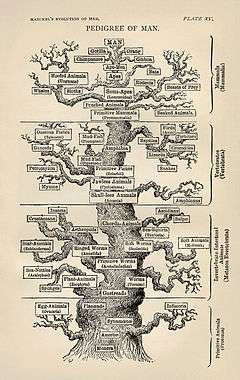Aerobiology

Some common air-borne spores
Aerobiology (from Greek ἀήρ, aēr, "air"; βίος, bios, "life"; and -λογία, -logia) is a branch of biology that studies organic particles, such as bacteria, fungal spores, very small insects, pollen grains and viruses, which are passively transported by the air (Spieksma, 1991). Aerobiologists have traditionally been involved in the measurement and reporting of airborne pollen and fungal spores as a service to allergy sufferers (Larsson, 1993).
The first finding of airborne algae took place in Germany in 1910.[1]
The minimum requirements published after a big consensus are an international standard to ensure the quality in Aerobiological method.[2][3]
See also
References
- ↑ Guadalupe Roy-Ocotla; Jorge Carrera (1993). "Aeroalgae: Responses to some aerobiological questions". Grana. 32 (1): 48–56. doi:10.1080/00173139309436419.
- ↑ Galán, C.; Smith, M.; Thibaudon, M.; Frenguelli, G.; Oteros, J.; Gehrig, R.; Berger, U.; Clot, B.; Brandao, R; EAS QC Working Group (December 2014). "Pollen monitoring: minimum requirements and reproducibility of analysis". Aerobiologia. 30 (4): 385–395. doi:10.1007/s10453-014-9335-5.
- ↑ Oteros, J.; Galán, C.; Alcázar, P.; Domínguez-Vilches, E. (January 2013). "Quality control in bio-monitoring networks, Spanish Aerobiology Network". Science of the Total Environment. 443: 559–565. doi:10.1016/j.scitotenv.2012.11.040.
External links
This article is issued from Wikipedia - version of the 11/8/2016. The text is available under the Creative Commons Attribution/Share Alike but additional terms may apply for the media files.
